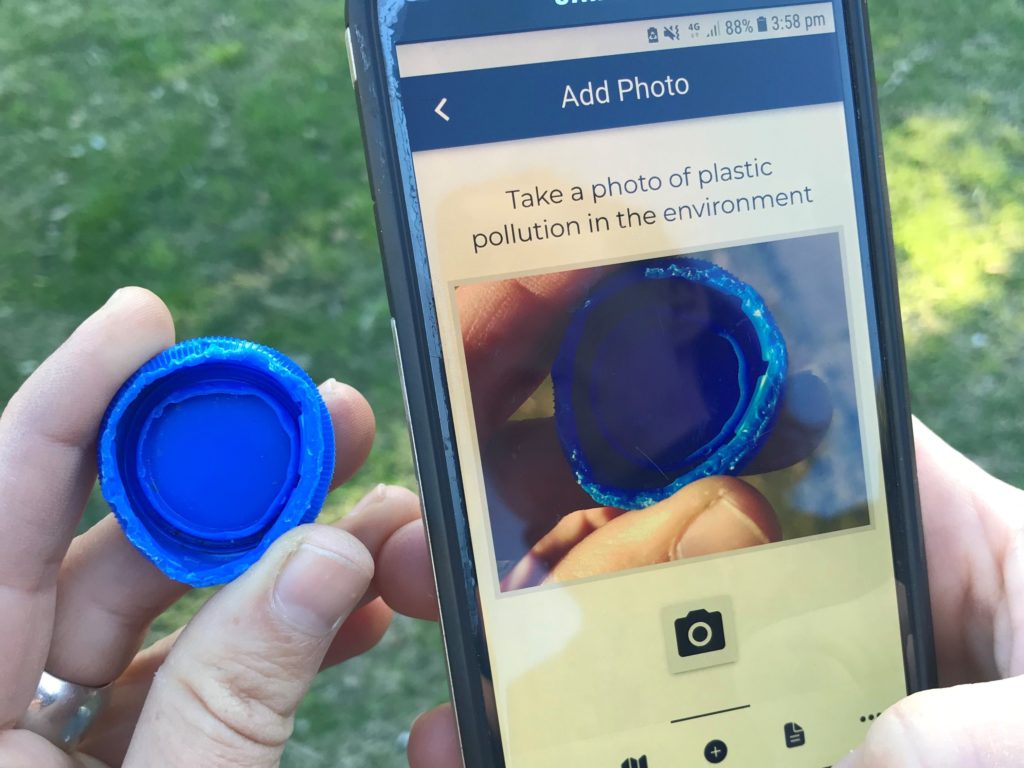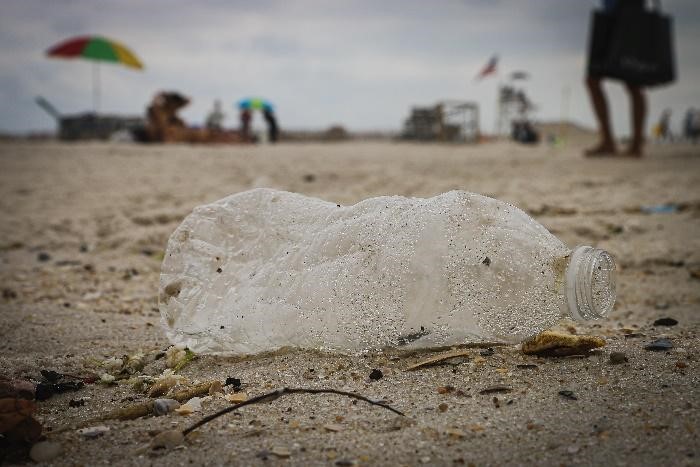
Rubbish app: upload photos of plastic pollution to the Earth Challenge 2020 app.
There are trillions of pieces of plastic estimated to be floating in our oceans. When you add land and our coastlines, there is a magnitude more plastic in the environment. But we don’t know exactly how much is out there.
With your help, we can find out! It’s easy through your mobile device. All you need is the Earth Challenge 2020 app.
Photos of rubbish not a load of rubbish
Using the free Earth Challenge 2020 app, you can upload images of pollution when you see it – no matter where you are. Whether you’re walking along the beach or going for a stroll in your neighbourhood (following social distancing and safety measures in your area), use your phone and upload a snap of any rubbish that you see.
This isn’t about capturing your best ever selfie. Or a buzzworthy photo. Your photos will be of trash after all! But every photo you upload will support the fight against plastic pollution.
Your images will feed into a global database to provide scientists and global governing bodies with information on all things rubbish. This data includes where it’s found, the different types, and how much there is.
To request a transcript please contact us.
Uploading your images to the Earth Challenge 2020 app is easy!
Uniting to protect the environment
The app will bring you together with thousands of people from across the globe. You’ll be part of a citizen science effort to generate plastic pollution solutions. This project uses leading methods for data collection – like ours – to measure plastic pollution.
In Australia, 75 per cent of the rubbish along our coastlines is plastic. Research also shows the majority of plastic pollution from our oceans ends up back on land where it becomes trapped along our beaches.
This project will build on our research analysing what rubbish there is on land versus the seafloor. It will inform future research projects and assist local authorities to develop targeted waste management strategies. All to reduce the impact of pollution on the environment.
The Earth Challenge 2020 app will expand our datasets to paint a picture of the plastic pollution problem worldwide.

Our research is addressing where, what and how marine debris ends up in our oceans and on land. Credit: Brian Yurasits
A plastic pollution revolution
The more people using the app, the more we will learn about plastic pollution. We will get a better idea of the types of rubbish ending up on our streets, in our waterways, on our beaches, and in our oceans. We know the detrimental impacts plastic pollution has on marine life, the environment and human health. Using the app will highlight what needs more attention to generate solutions and tackle plastic pollution.
If it’s safe to do so in your neighbourhood, put any rubbish you find in the bin or recycle it. This will reduce the amount of litter in the environment.
Download the Earth Challenge 2020 app today and put plastic pollution science in your hands. Contribute to this global effort to learn how much – and where – our trash is found in the environment. The app is also addressing air quality to build a safer and healthier environment.
Other important citizen science projects can be found at the Australian Citizen Science Association too.
Global partners addressing global issues
Earth Challenge 2020 is an initiative with leading partners the Wilson Center, a U.S.-based international think tank, the U.S. Department of State’s Eco-Capitals Forum (ECF), and the Earth Day Network.
It is a citizen science project, which means the science is in the hands of everyone – like you! The app’s goal is to connect, build, and enable global communities to leverage the power of technology and collaborate in scientific research to drive meaningful change. For plastic pollution, the app is establishing the first global baseline of how much plastic pollution there is.
The team is partnering with the Atlas of Living Australia and international groups such as United Nations Environment Programme, Citizen Science Asia, the Group on Earth Observations (GEO), and many more.
Together, we can reduce plastic pollution.


27th September 2020 at 9:08 am
We used to manage before plastic! Take shopping bags with you, cardboard coffee cups, glass bottles, wooden disposable spoons in ice cream, KitKat chocolate in foil and paper wrapper, ice cream in cardboard block, fruit and veg placed bare into shopping bag, butter/Mary in foil or greaseproof wrapper…. I could go on!
25th September 2020 at 9:37 am
I would like every person taking a photo to also take a reusable plastic bag along and recover the offending plastic, then place all the recovered plastic into a recycling bin, I do this where ever I go, and it seems like a never ending exercise, but during the last year, I have collected over 1 tonne of recyclable plastics
14th September 2020 at 9:04 pm
I love to pick up plastic but as a kid I would love to not have to pick up plastic
” you will die from old age I will die of climate change”
” I amnoloner accepting the things I cannot change I am now changing the thing’s I canot accept
31st August 2020 at 11:37 am
try to recycle as many things as you can as many times as you can because some animals are in danger from not recycling things and just throwing them in the bin as soon as you finish using it once.